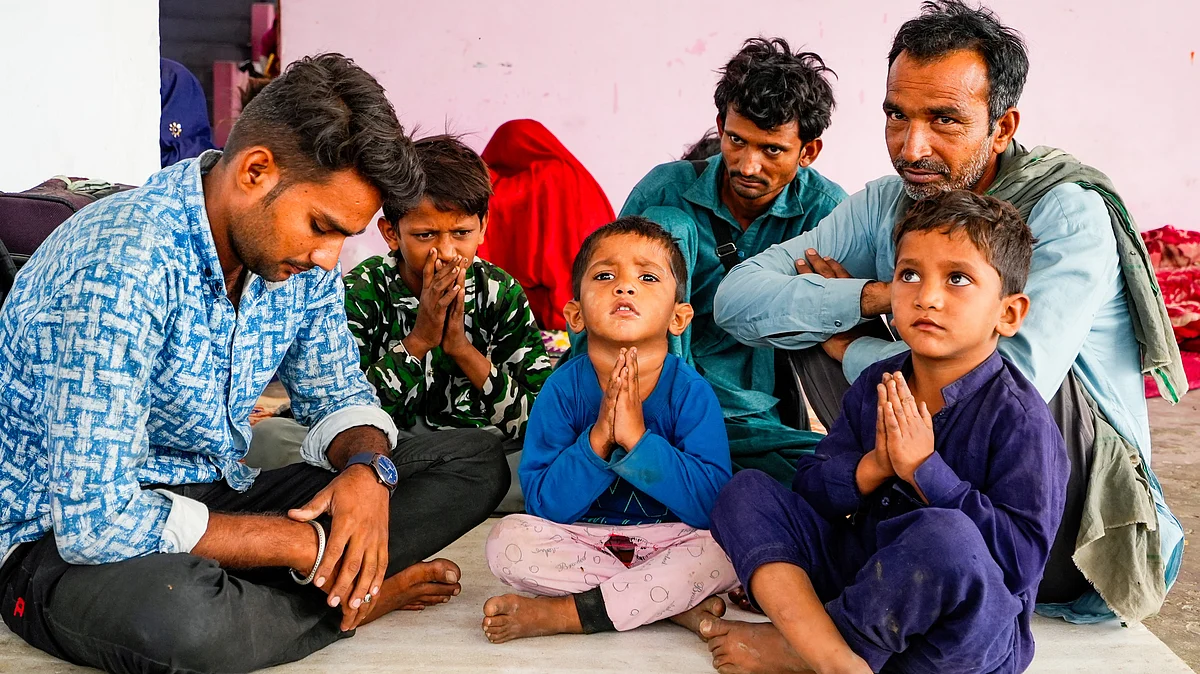World
Pahalgam attack: Pakistan urges Muslim nations to ask India to de-escalate tensions
PM Shehbaz Sharif says Pakistan condemns terrorism in all its forms and manifestations

Pakistan Prime Minister Shehbaz Sharif on Friday urged 'brotherly countries', including Saudi Arabia, to impress upon India the need to de-escalate and defuse tensions heightened after the Pahalgam terror attack that killed 26 people.
Sharif separately met Saudi ambassador Nawaf bin Saeed Al-Maliky, UAE (United Arab Emirates) ambassador Hamad Obaid Al-Zaabi and Kuwait ambassador Nasser Abdulrahman Jasser in Islamabad when the prime minister reaffirmed Pakistan's desire for peace and stability in South Asia, state-run media said in national capital Islamabad.
The series of meetings with 'brotherly countries' took place amid heightened tension between India and Pakistan after terrorists killed 26 people, mostly tourists, in Jammu and Kashmir's Pahalgam on 22 April.
The term 'brotherly countries' is frequently used for Muslim countries, such as Saudi Arabia, UAE and Turkey, with which Pakistan enjoys good credentials.
Radio Pakistan reported that while speaking to ambassador Nawaf, “the prime minister outrightly rejected baseless Indian accusations linking Pakistan to the Pahalgam incident without any evidence and reiterated his call for a transparent and neutral international investigation into the incident”.
While sharing Pakistan's perspective on recent developments in South Asia after the Pahalgam incident, Sharif said, “Pakistan condemns terrorism in all its forms and manifestations.”
He also highlighted the government's complete focus on consolidating the hard-earned economic gains of the past 15 months, with the support of friendly countries, including Saudi Arabia.
He added that it is inconceivable for Pakistan to act in an irresponsible manner to jeopardise its achievements and derail the country from the path of economic progress.
In another meeting, Sharif thanked UAE ambassador al-Zaabi for unwavering support to Pakistan. He categorically rejected “the baseless accusations leveled by India in its desperate attempts to link Pakistan to the Pahalgam incident, without any evidence” and instead shared how Pakistan has been a victim of terrorism over the last few decades.
Published: undefined
The prime minister said Pakistan has nothing to do with this and emphasised that he has offered to have a credible, transparent and neutral international investigation into the incident, the report said.
State-run news agency Associated Press of Pakistan reported that Sharif told Kuwaiti ambassador Jasser that Pakistan was confident of its stance and had offered to the international community to conduct a credible, transparent and neutral investigation into the incident.
All three ambassadors said their respective countries would work closely with Pakistan to maintain regional peace and security.
On Thursday, Chinese ambassador to Pakistan Jiang Zaidong met Prime Minister Sharif in Islamabad and exchanged views on India-Pakistan tensions as Beijing kept abreast with the evolving situation.
On Wednesday, Qatar, Saudi Arabia and Kuwait expressed their deep concern over the escalation of tension between India and Pakistan following the Pahalgam terror attack and called on both sides to exercise restraint and resolve the crisis through diplomatic channels.
In separate statements, these countries reiterated their “full support for all efforts aimed at de-escalating tensions” between India and Pakistan and addressing their outstanding issues through dialogue and peaceful means.
Earlier last week, Pakistan briefed a group of Islamabad-based heads of mission and diplomats on 24 and 25 April on the evolving situation following the Pahalgam attack, sharing the outcomes of its National Security Committee meeting.
“As part of ongoing diplomatic engagement, foreign secretary Amna Baloch briefed heads of mission and diplomats based in Islamabad on the latest developments following the Pahalgam attack” in Jammu & Kashmir, the foreign office had said.
Published: undefined
Follow us on: Facebook, Twitter, Google News, Instagram
Join our official telegram channel (@nationalherald) and stay updated with the latest headlines
Published: undefined